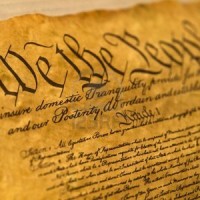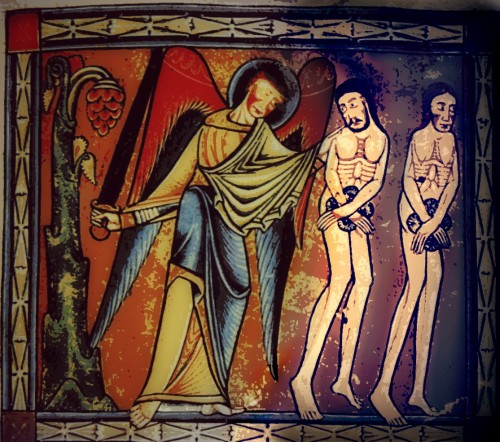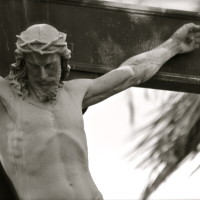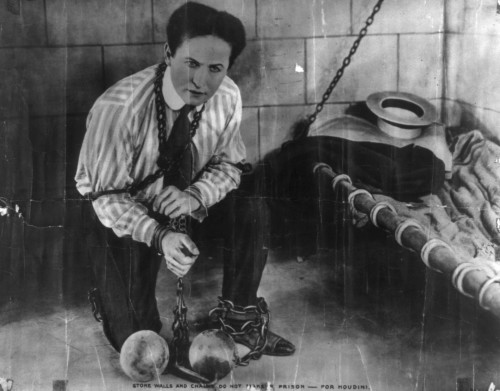What a week! Back last August, I planned out the series of Acts of the Holy Spirit and the Apostles and this week’s message was set as Acts 15:1-29. The topic concerns council matters or as I titled it almost a year ago, Court Decisions. As I was working on my message this week, the Supreme Court of the United States came down with a few rulings of its own. It’s been all over the news. One can hardly avoid it even if one wished to avoid seeing anything about it.
If you’ve been hiding under a rock with earplugs in, sleeping your life away like Rip Van Winkle, found yourself stranded alone without technology on an island in the Pacific, or have been held in solitary confinement with no contact with the outside world, the US Supreme Court decided about the Obamacare subsidies and also made a ruling about “gay marriage”. Landmark decisions both.
 No matter where you fall on the political spectrum, I think we can all agree that the Supreme Court of the United States is supposed to uphold the US Constitution and is mandated with applying the legal code fairly using both logic and precedent.
No matter where you fall on the political spectrum, I think we can all agree that the Supreme Court of the United States is supposed to uphold the US Constitution and is mandated with applying the legal code fairly using both logic and precedent.
Theirs is a legal and governmental job description: to make decisions with regard to the US Constitution and other laws.
Theirs is not a theological job description. Therefore, they do not consult God for His view on things. That is not their job as a Court, although the justices on an individual-by-individual basis may think theologically about these matters. (Or maybe not…)
Celebrations have been massive in front of courthouses, for the press consumption, and all over TV. Yet, for many others, the grief is palpable. They see the decisions through a different lens. To them, these decisions undermine very religious freedoms our nation has held dear since its founding. A pledge of allegiance to the flag once included One Nation Under God… but now would appear to be changed, proclaimed instead as One Nation above God or instead of God.
I have spent the past 48 hours consoling people. They are frustrated, angry, and depressed. Primal screams of distress at a culture rotting in its core with the lovely rainbow promise of God… corrupted… to celebrate the very type of thing that caused the Great Flood to begin with. As it says in Genesis 6:5 “The LORD saw how great man’s wickedness on the earth had become, and that every inclination of the thoughts of his heart was only evil all the time.” So came the Flood never to be repeated.
Why have people reached out to me?
Certainly not because I have magic answers or wisdom beyond my years. It’s this: While the Supreme Court may not be in the habit of consulting God, I am. And I would encourage you to do the same. We read our Bibles to find out what God has to say. It is how we stand firm for the Truth…though the culture around us has shifting sands. Truth of what God says…just as it outlines in today’s passage of Acts that I’ve entitled Court Decisions.
A sharp dispute arose between our dream team of Barnabas and Paul vs. some men who came down from Judea to Antioch. They’d come down from the Holy City believing themselves to have great authority and pretending to be bigger than they were. They began to insist that salvation comes only through the Jews so therefore, every Gentile has to first become Jewish and then be saved. It’s like a 2 stage process. First be circumcised and follow the customs of Moses like every other real Jew…and then you can be saved. Basically they were asserting that salvation is Jesus plus a bunch of laws.
Let’s listen: Acts 15:1 Some men came down from Judea to Antioch and were teaching the brothers: “Unless you are circumcised, according to the custom taught by Moses, you cannot be saved.” 2 This brought Paul and Barnabas into sharp dispute and debate with them. So Paul and Barnabas were appointed, along with some other believers, to go up to Jerusalem to see the apostles and elders about this question.
 This was not an insignificant theological point!
This was not an insignificant theological point!
It wasn’t going to be resolved by “lower court rulings.”
They needed to check it out with the apostles and the elders and to get a theological ruling from the highest court available.
Why was it significant? Let’s look at several reasons:
First, the Court Decision was significant because it goes to the very heart of the Gospel. It answers the question of whether Christ’s sacrifice is really sufficient to save sinners. Is it all done by Jesus or do we have to earn it? Is it grace or is it by works? Is salvation only for the Jews and those who become Jewish…or is it available to the whole world?
If a person has to work really hard and perfect his life, clean up his act, do this, do that, in order to be acceptable to be saved…then was Christ’s sacrifice really sufficient to save sinners? This point of dispute appears at the central point of the Book of Acts and forms the very center of early theology.
Not an insignificant point at all…and one I might add that we continually see in churches today. It’s a major dividing point between Protestants and Catholics, for example…the role of works and faith, Word and traditions, and the sufficiency of Christ by grace alone.
So back to our story: 3 The church [at Antioch] sent them on their way, and as they traveled through Phoenicia and Samaria, they told how the Gentiles had been converted. This news made all the brothers very glad. 4 When they came to Jerusalem, they were welcomed by the church and the apostles and elders, to whom they reported everything God had done through them.
Testimony is fundamental to the Gospel. We don’t put the Light of Christ under a bowl. We tell people about it! It doesn’t, however, mean that all Christians even agree. Sometimes the higher court, if you will, must consider questions and disputes. Their decision would be a landmark decision—one that would have implications for the rest of human history.
There are two sides. This Court Case might be titled Gospel Grace v. Obey Moses.
5 Then some of the believers who belonged to the party of the Pharisees stood up and said, “The Gentiles must be circumcised and required to obey the law of Moses.” 6 The apostles and elders met to consider this question.
People for whom the Law was important, the believers from among the Pharisees, presented their case. Who were the apostles and elders who were considering this? Well, Peter, James (Jesus’ brother), and John were likely there. Perhaps others. But the important thing is that they didn’t brush this disagreement under the rug or shoot from the hip without hearing arguments from both sides. Our Scriptures say “after much discussion”…not just a quick sound byte and then a wave of the hand, “Enough!” or a passive-aggressive yawn of “whatever”. Rather,
7 After much discussion, Peter got up and addressed them: “Brothers, you know that some time ago God made a choice among you that the Gentiles might hear from my lips the message of the gospel and believe. 8 God, who knows the heart, showed that he accepted them by giving the Holy Spirit to them, just as he did to us. 9 He made no distinction between us and them, for he purified their hearts by faith. 10 Now then, why do you try to test God by putting on the necks of the disciples a yoke that neither we nor our fathers have been able to bear? 11 No! We believe it is through the grace of our Lord Jesus that we are saved, just as they are.”
Peter, the disciple Jesus set apart as the leader of the newly formed Church back in Acts 2 now addressed the believers on both sides. Listen again to how he pointed to God which brings up a second point about Court Decisions:
This Court Decision would be grounded in and established by God. God made a choice (v.7). God knows the heart. God accepted them. God gave them the Holy Spirit (who is God) and God gave the same to the Jews (v. 8). God made no distinction. God purified their hearts by …(wait for it)……….faith! (v 9)
And then he basically asks, “Who are YOU to test God who has done all this by making the Gentiles do what we couldn’t do as Jews?”
Then Peter’s claim is that it is by GRACE we are saved…both Jew and Gentile…by God’s plan.
Then the group listens to more evidence: 12 The whole assembly became silent as they listened to Barnabas and Paul telling about the miraculous signs and wonders God had done among the Gentiles through them.
Paul and Barnabas also point to God! And when we consult God and God gives us answers, we’re wise to obey His answer. James, Jesus’ brother who was a Jew of Jews and also a believer…a Christian…who was presiding over all these arguments arrives at a Court Decision.
13 When they finished, James spoke up: “Brothers, listen to me. 14 Simon [emphasizing Peter’s Jewish heritage] has described to us how God at first showed his concern by taking from the Gentiles a people for himself. 15 The words of the prophets are in agreement with this, as it is written [he’s appealing to precedent of Scripture]: 16 “‘After this I will return and rebuild David’s fallen tent. Its ruins I will rebuild, and I will restore it, 17 that the remnant of men may seek the Lord, and all the Gentiles who bear my name, says the Lord, who does these things’ 18 that have been known for ages.
Then he states this final conclusion: James’ opinion of the Court: 19 “It is my judgment, therefore, that we should not make it difficult for the Gentiles who are turning to God.
After all, if God is drawing them and making the Gentiles part of the family of God, who are we to make things difficult for them? As it says in Romans 13:10 “Love does no harm to its neighbor. Therefore love is the fulfillment of the law.” We cannot make things more difficult for others to obey God!
But third, and importantly, this Court Decision was significant because it establishes a sense of order and responsibility.
God doesn’t ask that we clean up our act BEFORE coming to faith, but God also doesn’t want His people to reflect poorly on Him by refusing to obey the One they claim to follow. The cleanup isn’t before grace and faith. The cleanup is as a RESPONSE.
Don’t make it difficult for them to find God. But, THIS IS IMPORTANT don’t be an enabler for them to remain every bit the same as they were before.
Regenerated people don’t look and act like degenerates.
20 Instead we should write to them, telling them to
- abstain from food polluted by idols,
- from sexual immorality,
- from the meat of strangled animals and
- from blood.
In other words, accept them as brothers, but hold them to pursuing a standard of morality that would please God. The food things were a matter of sensitivity to their Jewish brothers in the Christian faith. But the non-food one that doesn’t seem to go with the others is sexual immorality. That one James talks about is interesting, especially for us in our culture and in our present day where anything goes. The things James refers to are in the code of sexual conduct from Leviticus 18.
Flash forward to one of our Supreme Court rulings this week. The US legal code may say one thing, but God makes no secret of His view that homosexual expression is part of the broken world, just as are alcoholism, congenital lying, adultery, murder, etc..
Our broken world cannot be blamed on God. NOR can it be used as an excuse to rebel against Him, to redefine love as being nothing more than sex, or marriage as being a legal institution instead of a God-ordained one.
The Bible teaches—completely consistently—that expressing homosexual behavior as a response to brokenness within reproductive function is a sin. That’s what Leviticus 18 clearly states. But it’s not just listed there. Every place in the Bible where homosexuality appears, in 100% of the occurrences, it is described as a social evil, something God finds repugnant, and a temptation over which a person needs to be self-controlled. Just like other sins like adultery, child abuse, deceit, and incest, etc.. Ever since the fall of man, we’ve been sinners–banished from Eden because of our sins.
 We can be sympathetic to the difficulties of self-control in areas of sin.
We can be sympathetic to the difficulties of self-control in areas of sin.
After all, the Bible says we are all sinners by NATURE now and that’s out of our control. But our RESPONSE to that nature, to how one feels…this is a choice.
The response is a choice.
Just as we’re stuck with a sin nature which is not a choice, the tendency or predisposition toward homosexuality or other sexual sins is not a choice. But what they do with it–their response–is.
Hear me clearly since I know there is great division even in Christian circles about this:
Anyone who puts God first in their lives will want what God wants. They will obey Him.
If they don’t obey Him, then He is not their Lord. They are their own lords, doing what they want and having the audacity to demand God’s blessing on it.
Not just in the same-sex realm but in every area of life. We must honor God because He created us. Our response, our CHOICE, is to obey. Therefore, we are commanded to master sin, not normalize it. Cain, the first murderer, committed murder because sin sought to master him. God even told him so. But Cain refused to master it.
So, in our passage, James as the leader of the church insists that people honor God by abstaining from things that dishonor God. He didn’t normalize those things and demand that religious sorts just get over it. The food related ones were a matter of sensitivity because Romans 13:10 “Love does no harm to its neighbor. Therefore love is the fulfillment of the law.” The one regarding sexual immorality is different, a timeless truth Genesis to Revelation, and mastering sin is always God’s command for us.
To the gay rights community, all I can say is a victory at the Supreme Court is only enabling them to embrace what God rejects. Normalizing sin isn’t helping anyone. It’s just documenting our godless living and rejection of God as our supreme authority.
I submit to you that the least loving thing a person can do is to let those they care about thumb their noses at the Almighty.
Forgiveness that is offered by Christ comes with the heavy responsibility not to use that freedom as a license to go ahead and sin, thinking that Jesus already covered that so what the hell, go ahead and make the most of the sin while you can.
I’m sad, personally, for the very people who are cheering the most.
I’m sad because their day at real Court is coming and this Decision will be final. God’s standard of holiness will be the measure. Not the 14th Amendment. I’m sad because forgiveness would have been theirs if they agreed with God. I’m sad because they been self-deceived and I won’t have been able to convince them to master the temptation to sin, and in the end, all that’s left for them according to the Word of God is Judgment.
 Trust me, it won’t be good to have bought “the big lie” that God doesn’t care how one lives. He’s not open minded.
Trust me, it won’t be good to have bought “the big lie” that God doesn’t care how one lives. He’s not open minded.
And He’s not tolerant of evil.
He punishes it.
He punished it on Jesus, our sinless Savior.
God’s only Son died for our sins on the Cross.
So in our passage James encourages everyone to a high standard of self-control, integrity, truth, and sensitivity. The Law was important then as it is now for being a mirror to show us how we’re living. That’s what James means when he encourages the Pharisees that the Law isn’t unimportant. The principles contained in it become our holy standard for faith and practice, James says,
21 For Moses has been preached in every city from the earliest times and is read in the synagogues on every Sabbath.” 22 Then the apostles and elders, with the whole church, decided to choose some of their own men and send them to Antioch with Paul and Barnabas. They chose Judas (called Barsabbas) and Silas, two men who were leaders among the brothers. 23 With them they sent the following letter:
The apostles and elders, your brothers, To the Gentile believers in Antioch, Syria and Cilicia: Greetings. 24 We have heard that some went out from us without our authorization and disturbed you, troubling your minds by what they said. 25 So we all agreed to choose some men and send them to you with our dear friends Barnabas and Paul—26 men who have risked their lives for the name of our Lord Jesus Christ. 27 Therefore we are sending Judas and Silas to confirm by word of mouth what we are writing. 28 It seemed good to the Holy Spirit and to us not to burden you with anything beyond the following requirements: 29 You are to abstain from food sacrificed to idols, from blood, from the meat of strangled animals and from sexual immorality. You will do well to avoid these things. Farewell.
This Court Decision held everyone to a high standard of moral conduct. It encouraged everyone to honor God, respect one another, and to uphold God’s truth. Love the Lord your God and your neighbor as yourself. The Greatest Commandment and the one like it. Furthermore, this Court Decision was not a majority opinion with minority dissent on conduct. It was unanimous. It seemed good to the Holy Spirit…and us. Total unity in calling the Gentile Christians to a high standard of God’s purity and moral conduct, not the impossible standard of keeping the Law of Moses. Grace won. Love won (and not in the sense of the gay rights community). Why? Because holiness won. Unity won.
So what does this mean for us today?
First, the Court Decision from Acts 15 was significant because it goes to the very heart of the Gospel. The heart of the Gospel is both GRACE and TRUTH. Take a good look at yourself and your life. Are you living in a gracious way that honors your Creator by living in God’s truth? Or are you trampling the grace that saves by dishonoring God’s truth? Are your words both grace-filled and truth-full?
Second, the Court Decision was grounded in and established by God. So, reflect upon your reaction to court decisions and ask yourself if you’re trusting God who is the Judge to beat all judges. The King of kings and the Lord of lords. Or are you placing your hope in 9 unelected lawyers, many of whom don’t give a rip about God? The US Constitution is the authority to which lawyers are supposed to point back to, but Christians, true Christians always look to God and His Word.
Third, the Court Decision of Acts 15 was significant because it established both a sense of order and responsibility. Ask yourself whether you are adding burdens that keep people from coming to Christ. Ask whether you’re promoting an orderly and responsible society based upon God’s Truth. God doesn’t need your approval on His Truth to make it true. God’s Truth doesn’t get overturned if you don’t agree with Him. He’s right and there’s no debating God. So consider carefully the responsibility associated with calling oneself a Christian. It’s not an easy road and some of you probably don’t like that I’ve spoken without compromise on this topic. But we should stand with God and choose life, choose to preach God’s Truth and not care about winning popularity contests. Cleaning up our act is a response to what He’s done. He shows us mercy and He gives us grace! We should be willing to master temptations to sin. He deserves no less from us.
And finally, this Court Decision held everyone to a high standard of moral conduct. Remember we have a responsibility for living like regenerated people if we’re going to call ourselves Christian. Yes, James is right: don’t make it hard for people to come to the Church, but find ways of truly loving people enough to tell them the Truth about God and about what it means to be saved. Love does no harm to its neighbor. Don’t trample God’s grace. But in humility remember that self-control and mastering sin are things we can all be better at doing. And God, the Ultimate Judge, is glorified when we honor His sacrifice with our response of obedience.
Let’s pray.
 No matter where you fall on the political spectrum, I think we can all agree that the Supreme Court of the United States is supposed to uphold the US Constitution and is mandated with applying the legal code fairly using both logic and precedent.
No matter where you fall on the political spectrum, I think we can all agree that the Supreme Court of the United States is supposed to uphold the US Constitution and is mandated with applying the legal code fairly using both logic and precedent. This was not an insignificant theological point!
This was not an insignificant theological point! We can be sympathetic to the difficulties of self-control in areas of sin.
We can be sympathetic to the difficulties of self-control in areas of sin. Trust me, it won’t be good to have bought “the big lie” that God doesn’t care how one lives. He’s not open minded.
Trust me, it won’t be good to have bought “the big lie” that God doesn’t care how one lives. He’s not open minded. It’s Father’s Day, which is another day that’s not on the church calendar but we’re wise to recognize it anyway. There’s something I’ve never quite understood.
It’s Father’s Day, which is another day that’s not on the church calendar but we’re wise to recognize it anyway. There’s something I’ve never quite understood. To make matters even worse, we live in a world where people will go out and worship just about anything: money, sex, race, the planet and all the things in it, or what I witnessed this past week with the Chicago Blackhawks.
To make matters even worse, we live in a world where people will go out and worship just about anything: money, sex, race, the planet and all the things in it, or what I witnessed this past week with the Chicago Blackhawks. Kind of like what happened to the Cleveland Cavaliers. Not that you’d know it in Chicago that the Cavs lost to the
Kind of like what happened to the Cleveland Cavaliers. Not that you’d know it in Chicago that the Cavs lost to the  The real deal unites …and it divides.
The real deal unites …and it divides. 


 Knock Knock. Who’s there? Today’s Message. There are several different Who’s There? parts to today’s passage, but none of them are really a laughing matter.
Knock Knock. Who’s there? Today’s Message. There are several different Who’s There? parts to today’s passage, but none of them are really a laughing matter.